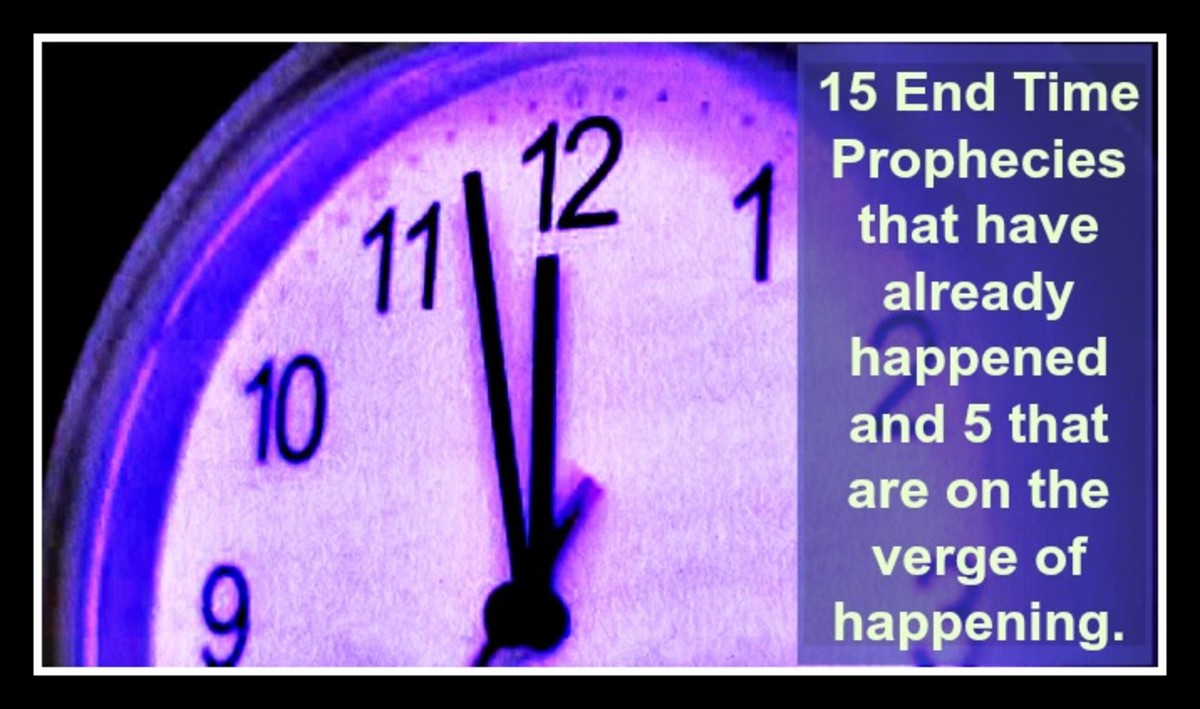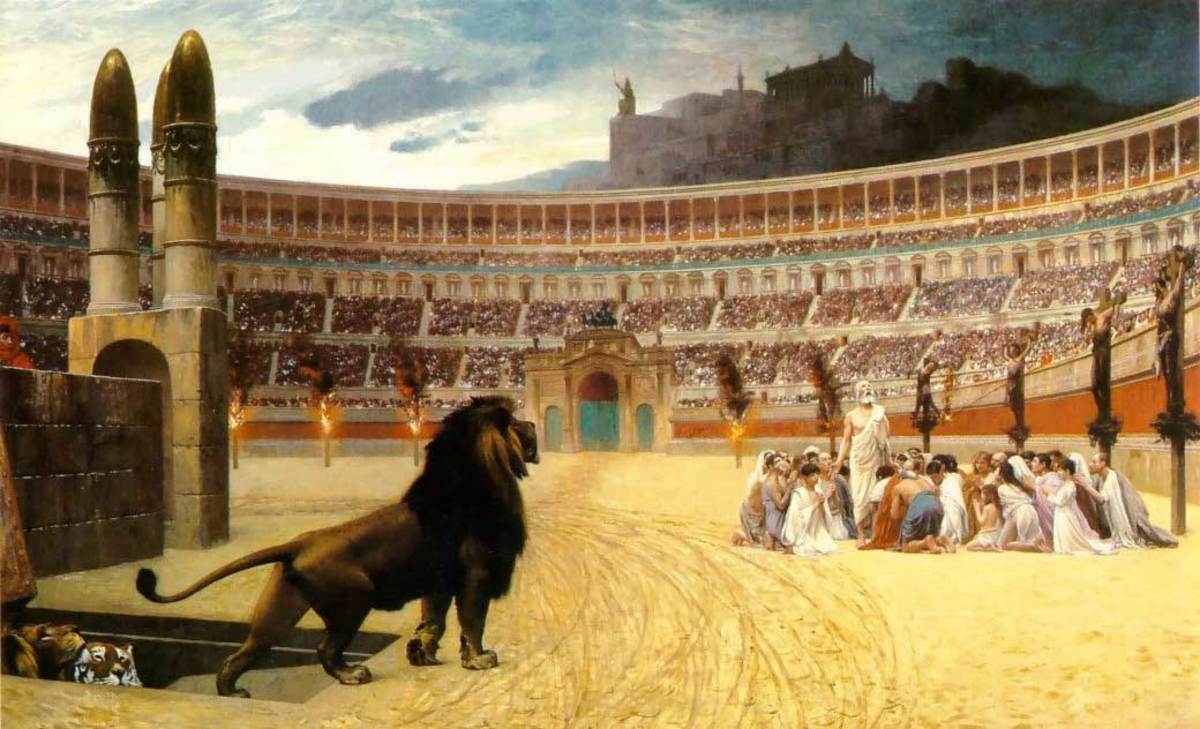Gospel Parallels to Leviticus 19:19

"Ye shall keep my statutes. Thou shalt not let thy cattle breed with a diverse kind. Thou shalt not sow thy field with mingled seed; neither shall a garment mingled with linen and wool come upon thee." - Leviticus 19:19
I found some interesting gospel parallels in this passage pertaining to Christian associations, theology and character; which I will be sharing in this hub.
Godly Cattle Ranching
Cattle symbolizes people in the Bible: "And as for you, O My flock, thus saith the Lord GOD: Behold, I judge between cattle and cattle, between the rams and the hegoats.” - Ezekiel 34:17 Furthermore, the Bible discourages Christians from associating with heathens several times. In terms of breeding, as symbolized in Leviticus 19:19, Christians are not to marry those outside of the faith; and Deuteronomy 7:4 forbid Israelite believers from allowing their sons or daughters to marry foreign idol worshipers for fear of turning them away from God to serve pagan gods.
The prohibition against marrying outside of the faith still stands today. There is no New Testament scripture reversing it; and for good reason. Many problems arise between Christians involved in marriages with Catholics, Muslims, atheists, etc. Christianity is in conflict with these religions. Catholics worship idols in the form of the Virgin Mary, saints and the cross, which the second commandment forbids (Exodus 20:4-5). Muslims claim that Mohammad is God’s messenger, while denying the divinity of Jesus and the plan of salvation in stating that He did not die on the cross for our sins; and Atheists do not believe in God at all.
Disagreements between married couples of different religions about their beliefs are just the beginning of their problems, especially if they decide to have children. Then their children will grow up torn between their parents’ conflicting beliefs. They may actually end up lost because of confused theology from an amalgamation of contradictory doctrines. On the other hand, they may abandon the idea of religion altogether as a result of their parents’ disunity.
Another form of association Christians should avoid with unbelievers is friendship:
“Be ye not unequally yoked together with unbelievers, for what fellowship hath righteousness with unrighteousness? And what communion hath light with darkness? what concord hath Christ with Belial? Or what part hath he that believeth with an infidel? And what agreement hath the temple of God with idols? For ye are the temple of the living God. As God hath said: ‘I will dwell in them and walk in them; and I will be their God, and they shall be My people. Come out from among them, and be ye separate,’ saith the Lord. ‘And touch not the unclean thing, and I will receive you, and will be a Father unto you, and ye shall be My sons and daughters,’ saith the Lord Almighty.” - 2 Corinthians 6:14-17
However, this does not mean that we are not to love our unbelieving neighbors and be “friendly” to them. We should care about them; and we should be helpful to them. Nonetheless, we should have ministry on out mind in the process. We should come close enough to them to be able to share the gospel with them, but not so close as to where we begin to be influenced by their unchristian habits.
First Corinthians 15:33 tells us, “Be not deceived: Evil associations corrupt good manners." It is important to keep in mind that unbelievers are under the power of the devil; and he can and will use them to adversely affect our relationship with God any chance he gets. Therefore, if an unbelieving “friend” of ours shows no interest in the gospel, we should keep our distance from that friend and keep our mutual association minimal.
A Sower went forth to Sow
Matthew 13:18-19 compares sowing seeds to spreading the Word of the gospel. So what does it mean to sow mingled seed? Maybe it means to preach inconsistent theology. This is a major issue in Christianity at large today. Pastors tell their congregations things like, once we are saved by God’s grace it is no longer necessary to obey the Ten Commandments. This is contradictory to the purpose of God’s grace, which is not only to save us from the death penalty of sin but to empower us to overcome sinful living. Paul resolved this issue with these words: "What shall we say then? Shall we continue in sin, that grace may abound? God forbid! How shall we, who are dead to sin, live any longer therein?" - Romans 6:1, 2.
Another gospel contradiction revolves around the nature of Christ. Some claim that His nature was that of Adam before the fall. Although, if that were the case, He would not have been “in all points tempted as we are” (Hebrews 4:15). Not to mention, He would not be able to “succor [aid] those who are tempted” (Hebrews 2:18), since He would not be able to relate to our struggles.
Conflicting doctrines regarding God’s grace, Jesus’ nature and the like lead to confusion and a warped Christian walk in some peoples’ lives. For instance, if they believe that God’s grace has freed them from the responsibility to obey His commandments, they will continue living a life of sin. Furthermore, if they think Jesus cannot relate to their struggles, they will not believe in His sustaining power. People in these conditions are actually worse off than people who are lost, because they think they are saved while being blind to the fact that they are lost.
Consistent theology is important. God is upset with those who misrepresent Him, as is seen in His rebuke of Job’s friends: “… the LORD said to Eliphaz the Temanite, "My wrath is kindled against thee and against thy two friends; for ye have not spoken of Me the thing that is right, …” - Job 42:7.
Holy Apparel
In the Bible, clothing symbolizes character. For example, Isaiah speaks of being covered by a “robe of righteousness” (Isaiah 61:10); that is, having a righteous character. So what does it mean to have a garment made up of different materials? The only thing I could think of is, it means to have a hypocritical character.
A hypocritical character is actually a violation of the commandment not to take the name of the Lord in vain, according to Paul:
“Thou therefore who teachest another, teachest thou not thyself? Thou that preachest a man should not steal, dost thou steal? Thou that sayest a man should not commit adultery, dost thou commit adultery? Thou that abhorrest idols, dost thou commit sacrilege? Thou that makest thy boast in the law, dost thou dishonor God through breaking the law? For, ‘The name of God is blasphemed among the Gentiles through you …’" - Romans 2:21-24
Hypocrisy is very damaging in its effects. It leads outsiders to not take Christianity seriously. They may even be disgusted by Christianity as the result of a hypocritical Christian associate. Just look at the effect Peter’s hypocritical separation from the Gentiles had on Barnabas and other Jewish believers (Galatians 2:11-13).
Do you think it is okay for Christians to marry outside of the faith?
“Thou therefore who teachest another, teachest thou not thyself? Thou that preachest a man should not steal, dost thou steal? Thou that sayest a man should not commit adultery, dost thou commit adultery? Thou that abhorrest idols, dost thou commit sacrilege? Thou that makest thy boast in the law, dost thou dishonor God through breaking the law? For, ‘The name of God is blasphemed among the Gentiles through you …’" - Romans 2:21-24
Hypocrisy is very damaging in its effects. It leads outsiders to not take Christianity seriously. They may even be disgusted by Christianity as the result of a hypocritical Christian associate. Just look at the effect Peter’s hypocritical separation from the Gentiles had on Barnabas and other Jewish believers (Galatians 2:11-13).
Leviticus 19:19 is symbolically full of practical, gospel wisdom. It calls us to be united in fellowship with believers in marriage and friendship. This is crucial so that we won’t stray from the faith. It necessitates the importance of having our theology in line. This is vital so that we will be right with God and not lead others astray. Moreover, it calls us to live holy lives. This we need in order to be a positive influence on those around us.
Unless otherwise noted, all Scripture references are from the 21st Century KJV Bible.








